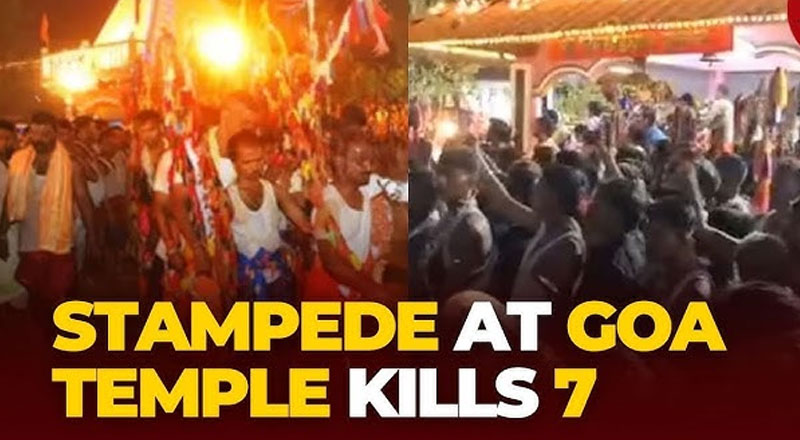A Nation Shaken Once Again
On a serene afternoon in Pahalgam—dubbed “Mini Switzerland” for its breathtaking beauty—the unthinkable happened. What should have been a peaceful day for tourists enjoying pony rides and picnics turned into a nightmare, as terrorists opened fire in a brutal attack. At least 26 innocent lives, most of them tourists, were lost in one of the most heinous acts of terror in Kashmir since the abrogation of Article 370 in 2019. The attack did not merely claim lives; it jolted the soul of India and reignited memories of past horrors like Pulwama. What followed was a swift and emotionally charged response from the highest levels of government.
Historical Context: Kashmir’s Long Battle with Terrorism
Jammu and Kashmir has long been at the epicenter of geopolitical and ideological conflict. Since the late 1980s, the region has witnessed relentless terror activities, many orchestrated from across the border in Pakistan. From the 2001 Indian Parliament attack to the 2016 Uri incident and the 2019 Pulwama suicide bombing, the pattern of targeting both security forces and civilians has continued unabated.
The abrogation of Article 370 was intended to fully integrate Jammu and Kashmir into India, bringing stability and development. However, the region has since experienced a mixed bag of calm interspersed with high-profile attacks. The Pahalgam strike represents a dangerous new chapter—this time, directly targeting tourists to cripple the region’s vital tourism industry and sow nationwide fear.
The Pahalgam Attack: Brutality in Broad Daylight
The terrorists struck at the heart of one of Kashmir’s busiest tourist hubs. In Baisaran meadows, families and tourists were caught unawares as gunfire erupted. Chaos ensued. Eateries, pony ride stations, and picnic spots turned into scenes of carnage. Officials confirmed that 26 people were killed, with many others seriously injured. The targets were unarmed civilians—men, women, and children.
Former J&K Police Chief Shesh Paul Vaid likened the attack to “Pulwama 2.0,” suggesting that India must respond with the same intensity that Israel demonstrates against Hamas. His words reflect the nation’s growing demand for action over appeasement.
Immediate Response: High-Level Mobilization
Prime Minister Narendra Modi, then on a diplomatic visit to Saudi Arabia, cut short his trip upon hearing of the tragedy. He cancelled key engagements, including an official dinner with Saudi Crown Prince Mohammed bin Salman, and returned to New Delhi immediately.
In parallel, Union Home Minister Amit Shah was dispatched urgently to Srinagar. Landing late Tuesday night, Shah convened a high-level security meeting and was briefed by top intelligence and law enforcement officials. The following morning, he laid a wreath in honor of the victims at the Police Control Room in Srinagar—a solemn moment that encapsulated the nation’s grief and resolve.
Shah’s actions signaled that the government is treating this not merely as another terror incident, but as a direct challenge to India’s national integrity and civilian security.
Nationwide Fallout and Global Condemnation
The attack triggered widespread protests across Jammu, especially by Hindu groups and BJP members, who raised slogans against Pakistan and demanded strict retribution. Meanwhile, the humanitarian angle became evident as over 50 tourists from Goa were reported stranded in Srinagar, prompting emergency rescue coordination.
Internationally, condemnation poured in. Sri Lanka’s President Dissanayake denounced the attack as a “cowardly act,” while China’s Ambassador Xu Feihong expressed opposition to terrorism “in all forms.” The global community, it seems, stands with India—but the responsibility of a decisive response lies within.
India’s Path Forward: Strategic and Security-Centric Response
The government has mobilized the National Investigation Agency (NIA) to lead the probe, with an Inspector General already en route to Pahalgam. But beyond investigative actions, the call for a broader counter-terror strategy is growing louder.
Going forward, India is expected to implement a multi-pronged plan:
- Increased Intelligence Surveillance: Enhance intelligence coordination to pre-empt such attacks, particularly in sensitive tourist zones.
- Military Precision Strikes: Reconsider cross-border surgical or drone strikes if evidence points to external involvement.
- Diplomatic Pressure: Escalate diplomatic isolation of state sponsors of terrorism through UN platforms and bilateral channels.
- Tourism Security Revamp: Deploy specialized security forces to key tourist destinations and invest in rapid response mechanisms.
- Community Outreach in Kashmir: Counter radicalization through local engagement and support to moderate voices.
A Test of Resolve
Pahalgam is more than a tourist spot; it’s a symbol of Kashmir’s natural beauty and India’s cultural diversity. This attack is not just an assault on people but on the idea of peaceful coexistence. Prime Minister Modi’s statement, “They will not be spared,” must now translate into definitive action—rooted not just in retribution, but in long-term resilience.
As the nation mourns the lives lost, the leadership’s swift mobilization underscores a new chapter in India’s anti-terror posture. Pahalgam will recover, but the message must be clear: India will not blink.
(With inputs from agencies)





